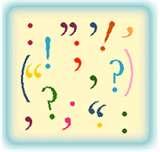Hands-On Searching:
Search Techniques continued
Once you have analyzed your topic and identified terms and concepts, the next step is put these together into a search statement that the database will understand.
Database “Grammar”
Boolean operators are terms that connect concepts with different kinds of relationships. The two most common Boolean operators are AND and OR.
- Use AND when you want the database to find results that include both/all of your concepts and/or terms. In the example below, you want only results that include both the terms pedagogy AND the term Gagne. (Note: You can have more than two concepts or words ANDed together.)
pedagogy AND Gagne
- Use OR when you have multiple terms for a concept and you want to find results that have any one of the terms connected by OR. The appropriate way to use OR is:
pedagogy AND (Bloom OR Gagne)
The parentheses tell the database that the text inside is a single unit, and the OR tells that database that only one of the terms listed need to be included in the search results.
Database “Punctuation”
Several punctuation symbols are used to direct how a database performs a search.
- Use quotation marks around words if you want them to be searched as the exact phrase only. “Blooms taxonomy” will find all articles that refer to this phrase, but will not find articles with only one term.
- Use an asterisk * when you want to truncate a term to account for different word endings. (Note: some databases use different symbols, such as a question mark or exclamation.) Truncation is useful when you need to account for singular and plural forms of a word, or to account for any of many different word endings.
Example: “learning style*” for results that have the phrases: learning style or learning styles
Example: evaluat* when any of the word endings, such as evaluate, evaluated, evaluation, are acceptable.
Example: evaluat* when any of the word endings, such as evaluate, evaluated, evaluation, are acceptable.


